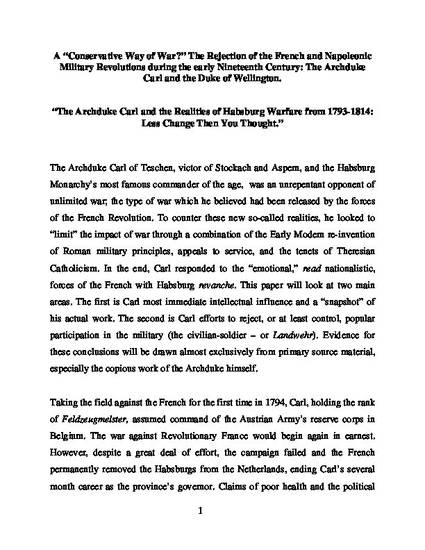
The Archduke Carl of Teschen, victor of Stockach and Aspern, and the Habsburg Monarchy’s most famous commander of the age, was an unrepentant opponent of unlimited war; the type of war which he believed had been released by the forces of the French Revolution. To counter these new so-called realities, he looked to “limit” the impact of war through a combination of the Early Modern re-invention of Roman military principles, appeals to service, and the tenets of Theresian Catholicism. In the end, Carl responded to the “emotional,” read nationalistic, forces of the French with Habsburg revanche. This paper will look at two main areas. The first is Carl most immediate intellectual influence and a “snapshot” of his actual work. The second is Carl efforts to reject, or at least control, popular participation in the military (the civilian-soldier – or Landwehr). Evidence for these conclusions will be drawn almost exclusively from primary source material, especially the copious work of the Archduke himself.
